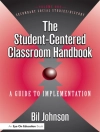ENG: The Great East Japan Disaster – a compound catastrophe of earthquake, tsunami, and nuclear meltdown that began on March 11, 2011 – has ushered in a new era of cultural production dominated by discussions on safety and security, risk and vulnerability, and recovery and refortification. Gender, Culture, and Disaster in Post-3.11 Japan re-frames post-disaster national reconstruction as a social project imbued with dynamics of gender, race, and empire and in doing so Mire Koikari offers an innovative approach to resilience building in contemporary Japan.
RUS: Великое восточнояпонское землетрясение 2011 года — глобальная катастрофа, открывшая новую культурную эру, в которой доминируют дискуссии о безопасности, рисках и уязвимости, восстановлении и реорганизации. В книге Мирэ Коикари национальное возрождение после катастрофы рассматривается как социальный проект, опирающийся на дискурсы гендера, расы и империи.
เกี่ยวกับผู้แต่ง
Mire Koikari is Professor of Women’s Studies at University of Hawaii, USA. She is the author of Cold War Encounters in US-Occupied Okinawa: Women, Militarized Domesticity, and Transnationalism in East Asia (2015) and Pedagogy of Democracy: Feminism and the Cold War in the US Occupation of Japan (2009).












